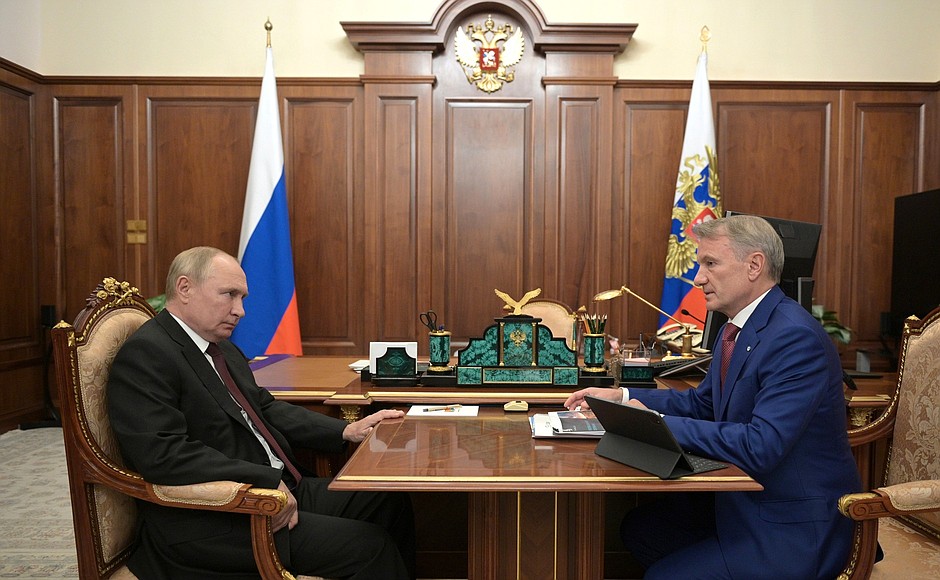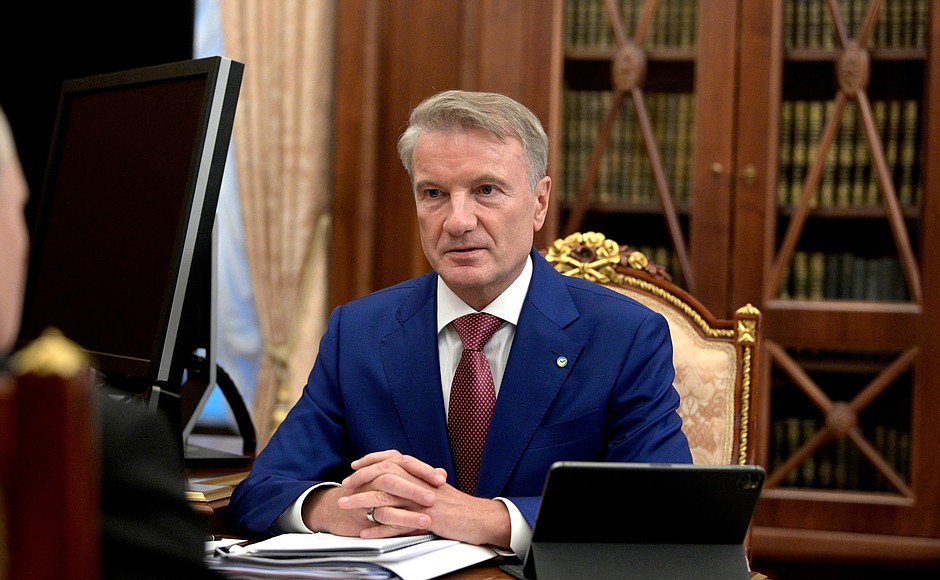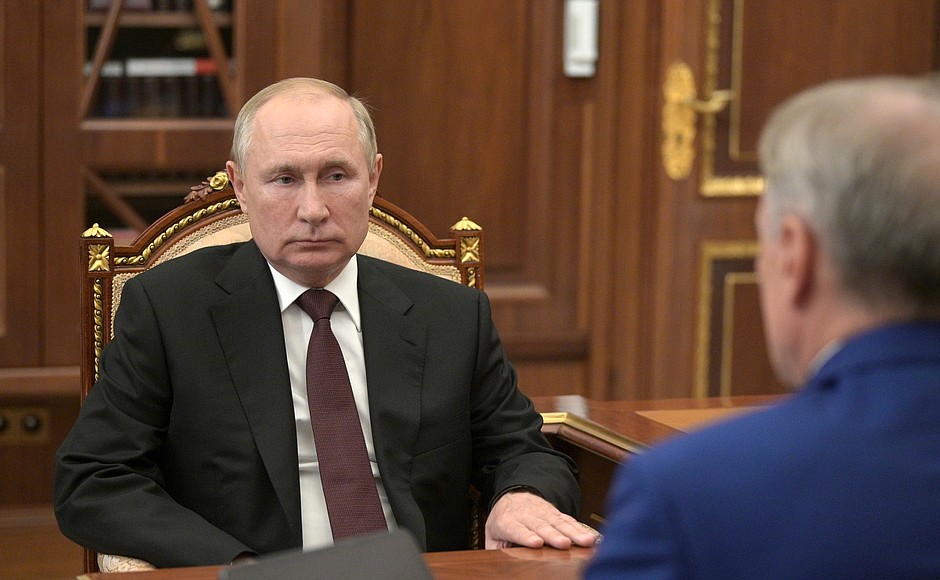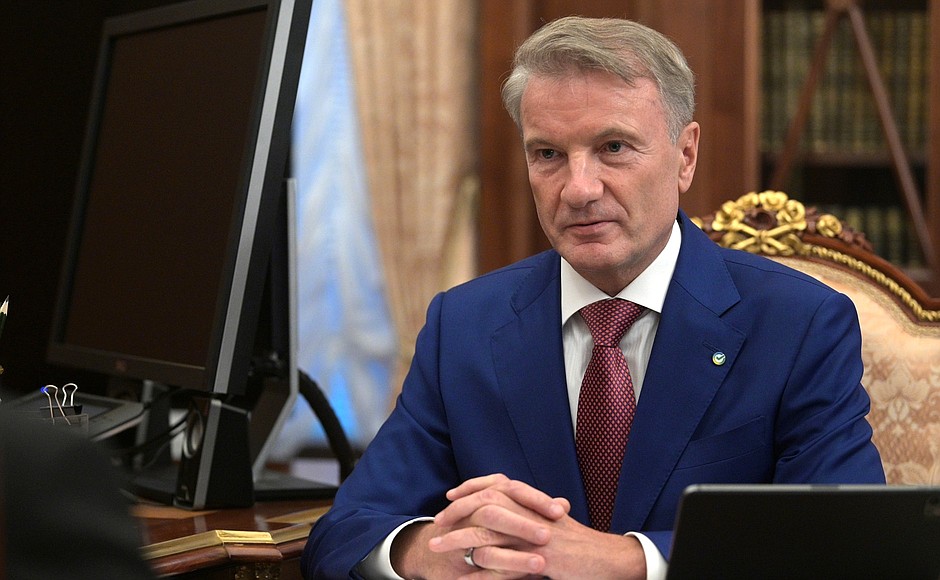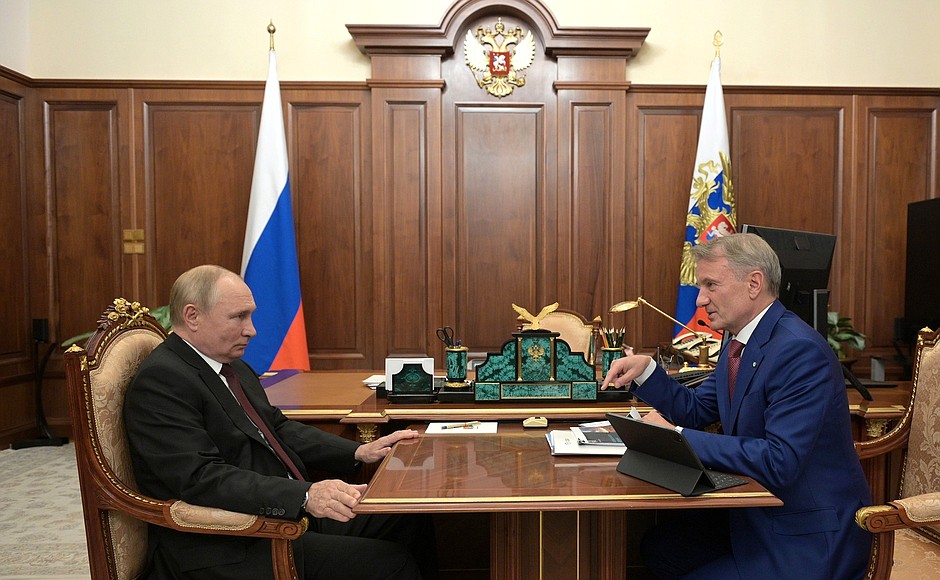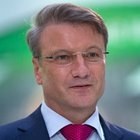President of Russia Vladimir Putin: I know everything is going well, and the bank is actively developing. A record profit, is that right?
Chairman of the Management Board of Sberbank German Gref: Yes, Mr President. This year we will probably make a profit in excess of a trillion rubles.
In this sense, this year has probably been one of the most successful. First, we have seen an economic recovery compared to the previous pandemic year; we have seen a revival in industry, a recovery in demand for credit resources.
Our initial projections for lending growth were far less optimistic. What we can see now is that lending to legal entities has already increased by about 3 percent. At the same time, SME lending is up 28 percent, which means a very rapid recovery from the pandemic. Lending to individuals is also doing fine.
We had thought mortgage lending would fall drastically after the end of the government programme for a number of categories, but nevertheless, this year, we expect an increase compared to last year, when the preferential mortgage programme was in effect.
Surprisingly, demand is very high; developers, along with banks, are beginning to stimulate the market, trying to compensate for the scrapping of the state programme for some people, lowering prices and offering special discounts. In general, we are very close to the level we had with government subsidies. True, mortgage issuance fell sharply at a certain point; but now the segment is gradually recovering. There is good growth in demand for mortgages among families with children, who are still entitled to join the state programme.
Overall, we can see rapid economic recovery. This year, according to our estimates, economic growth will be around 4.5 percent, at least 4.5 percent, and expectations for next year are generally quite good.
Vladimir Putin: Were you expecting about 3 percent?
German Gref: Yes. The growth is 1.5 times higher than expected. And next year – it will depend on the market situation, of course, but expectations are quite good, also around 3 percent next year. Growth is higher than originally expected.
Vladimir Putin: What is the structure of the portfolio in general? Has it changed this year?
German Gref: Yes. Lending to individuals in our bank is growing five times faster than lending to legal entities. So, over the past six years or so we have had a general trend towards alignment between the portfolios of legal entities and those of individuals. It was about 70 to 30 and now it is already around 60 to 40.
We are very undercredited, and our mortgage is on a very low level relative to the GDP. We believe our mortgage lending is growing 2.5 times relative to the GDP, as is normal for countries with comparable demand.
So we are likely to have demand in the construction and construction materials markets in the next few years, which is good. If the wave of inflation does not affect us as much and does not continue at its current pace (unfortunately, metals and other things have become much more expensive and housing prices have soared, of course) we would consider mortgage and construction as one of the drivers of economic growth.
As for the technological transformation, we are moving forward in accordance with our plans. We will most certainly transfer about 80 percent of all our systems to our new platform, which we have created entirely by ourselves, before the end of next year and we will not depend on imported software. We will still depend on hardware, of course, but software…
Vladimir Putin: But this is a key issue.
German Gref: Yes. Under the plan, we will practically complete the transition before the end of 2023. In 2021–2022, we should complete 80 percent, according to our plan. Right now we are on track with our plan and are even a bit ahead of it, so I think these two years are critical for the bank’s transformation.
The first problem is, of course, technological independence regarding software. The second matter is certainly the speed of transactions and labour intensity. In 2021 alone, we increased the efficiency of our systems by 50 percent, which is a big leap. This is a result of the introduction of new, cloud instruments. It makes our work reliable – we have far fewer failures and it allows us to develop at the same time.
This year, we will make 80 percent more changes in our system than in the previous year, using the same personnel. Of course, this becomes possible owing to the introduction of the new platform, new systemic and cloud solutions.
This year, we made additional payments, which was a big burden. We worked very closely with the Government. I also want to thank the Ministry of Communications, the Pension Fund and the Ministry of Labour. All of them worked very well and we did not have a single setback. We were very worried about the September payments, because we had to make three payments in one go, and this was the heaviest burden ever on our employees and our system. But by good fortune, everything went without a hitch. For two days, we asked our employees to work until the last customer was dealt with and our offices were working as long as people visited them. Considering that these were elderly people, we certainly tried to make their visits as comfortable as possible. We tried to eliminate queues. The average waiting time did not exceed five minutes. This happened inconspicuously but there was a lot of work behind it, of course.
Now the Government is working very hard on creating the social treasury. In principle, it will be a prototype of potential targeted payments to the people that need them for various reasons.
I believe that in the near future we will be able to do much more to overcome poverty with the help of digital technology.
Vladimir Putin: Good.
<…>
